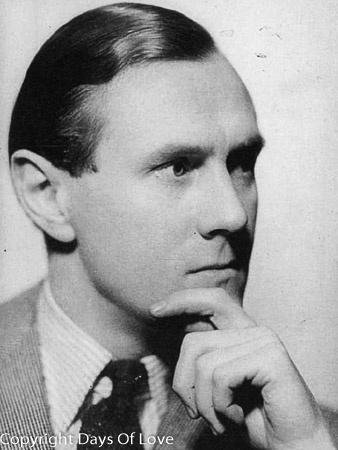

Partner Manoly Lascaris
Queer Places:
University of Cambridge, 4 Mill Ln, Cambridge CB2 1RZ
Cheltenham College, Bath Rd, Cheltenham GL53 7LD, Regno Unito
Highbury, 20 Martin Rd, Centennial Park NSW 2021, Australia
 Patrick
Victor Martindale White (28 May 1912 – 30 September 1990) was an Australian
writer who, from 1935 to 1987, published 12 novels, three short-story
collections and eight plays.
Patrick
Victor Martindale White (28 May 1912 – 30 September 1990) was an Australian
writer who, from 1935 to 1987, published 12 novels, three short-story
collections and eight plays.
White's fiction employs humour, florid prose, shifting narrative vantage points and a stream of consciousness technique. In 1973, he was awarded the Nobel Prize in Literature,[1] "for an epic and psychological narrative art which has introduced a new continent into literature", as it says in the Swedish Academy's citation,[2] the first and so far only Australian to have been awarded the prize[note 1]. White was also the inaugural recipient of the Miles Franklin Award.
Towards the end of the 1930s, White spent time in the United States, including Cape Cod, Massachusetts, and New York City, which were artistic hotbeds at the time, where he wrote The Living and the Dead. By the time World War II broke out, he had returned to London and joined the British Royal Air Force. He was accepted as an intelligence officer, and was posted to the Middle East. He served in Egypt, Palestine, and Greece before the war was over. While in the Middle East, he had an affair with a Greek army officer, Manoly Lascaris, who was to become his life partner.[14]
In Alexandria during the war, the Australian writer Patrick White had a brief affair with the Baron Charles de Menasce. At one of Menasce’s parties in July 1941, he met Manoly Lascaris, an Alexandrian with a Greek father and an American mother. (Working in the Bank of Athens in the early 1930s, Lascaris used to serve the aged and scruffy Constantine Cavafy, but was warned off meeting him outside work.) Menasce said of the relationship that developed between White and Lascaris, ‘Of course you must realise it won’t last. It never does with people like us.’ The two men took a flat together on the rue Safîa Zaghloul, which they kept on for the next six years. Their relationship lasted until White’s death in 1990.
White and Lascaris lived together in Cairo for six years before moving to a small farm purchased by White[15] at Castle Hill, near Sydney, in 1948. After the death of White's mother in 1963,[16] they moved into a large house, Highbury, in Centennial Park, where they lived for the rest of their lives.
After the war, White once again returned to Australia, buying an old house in Castle Hill, now a Sydney suburb but then semirural. There, he settled down with Lascaris, the Greek he had met during the war. They lived there for 18 years, selling flowers, vegetables, milk, and cream as well as pedigreed puppies.[17] During these years he started to make a reputation for himself as a writer, publishing The Aunt's Story and The Tree of Man in the United States in 1955 and shortly after in the United Kingdom. The Tree of Man was released to rave reviews in the United States, but in what had become a typical pattern, it was panned in Australia. White had doubts about whether to continue writing after his books were largely dismissed in Australia (three of them having been called 'un-Australian' by critics), but, in the end, he decided to persevere. His first breakthrough in Australia came when his next novel, Voss, won the inaugural Miles Franklin Literary Award.
In 1961, White published Riders in the Chariot. It was to become both a bestseller and a prizewinner, gaining him a second Miles Franklin Award. In 1963, White and Lascaris decided to sell the house at Castle Hill that they had named "Dogwoods". A number of White's works from the 1960s depict the fictional town of Sarsaparilla, including his collection of short stories, The Burnt Ones, and the play, The Season at Sarsaparilla. By now, he had clearly established his reputation as one of the world's great authors, but remained an essentially private person, resisting opportunities for interviews and public appearances although his circle of friends had widened significantly.
White and Lascaris hosted many dinner parties at Highbury, their Centennial Park home, in a leafy part of the affluent eastern suburbs of Sydney. In Patrick White, A Life, his biographer David Marr portrays White as a genial host but one who easily fell out with friends. Barrister Roderick Meagher, QC, despised White and described him as a "great shit". He said White was terribly cruel to other people and as rude as he could possibly be, rude to all sorts of people who did not deserve it.[25]
My published books: